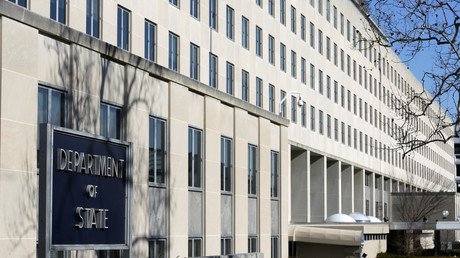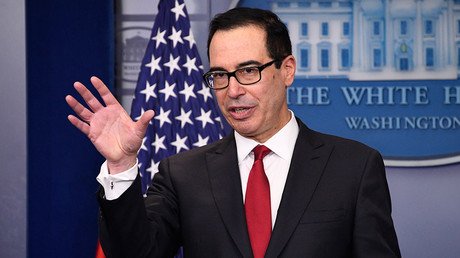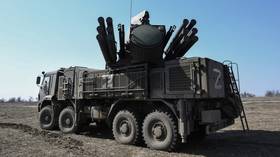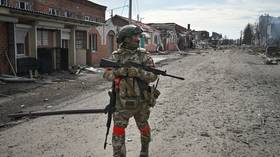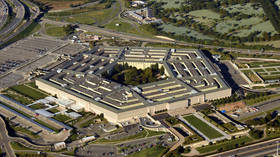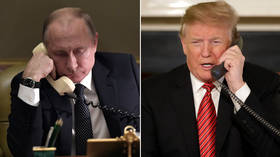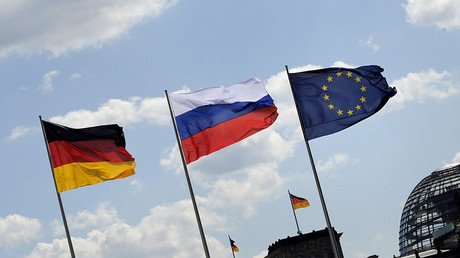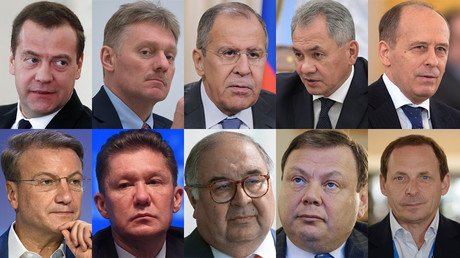US State Dept boasts 'billions' of arms deals diverted from Russia, refuses to name any
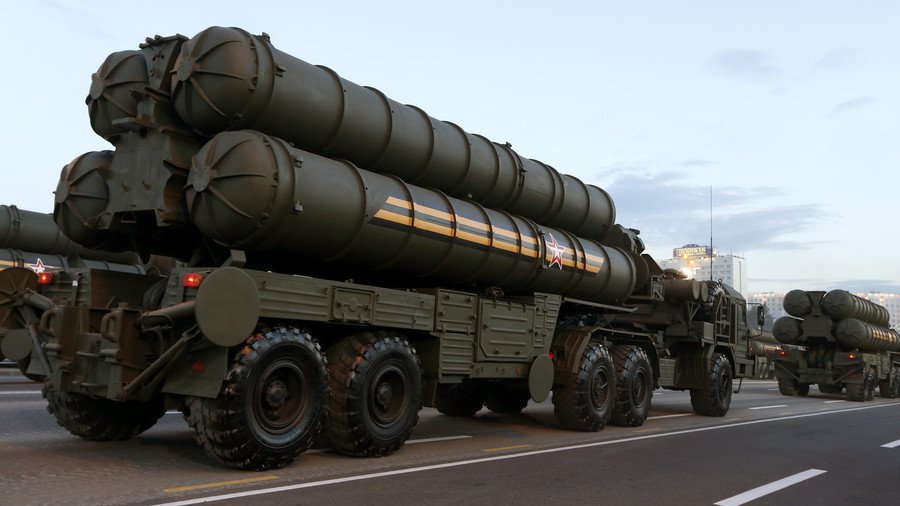
The US State Department has hailed its “real success” in deterring Russian defense exports, claiming Moscow will come up “several billion dollars” short. Officials, however, could not specify which deals were 'derailed.'
The State Department on Tuesday praised its own efforts to punish Russia for its “malign activity” by warning countries “around the world” of the potential repercussions resulting from dealings with Moscow.
“We have spent a considerable amount of time and energy on engaging with partners, with allies, with private industry explaining what Section 231 [of the Countering America's Adversaries Through Sanctions Act] (CAATSA) meant. And demarching countries where we thought there could be potential sanctionable activity, and pushing them to stop potential deals,” a senior Department official, whose name has not been disclosed, told a media briefing.
As a result of this globe-trotting effort, “we have been able to turn off potential deals that equal several billion dollars,” the official claimed, terming the policy a “real success.”
“It’s real money, and it’s real revenue that is not going to the Kremlin and is not going to Russia as part of the intent,” the official boasted.
When pressed by reporters from AFP, the Wall Street Journal, Bloomberg and CNN to provide an example of the deals torpedoed, the countries dissuaded or the exact amount of dollars Russia is set to lose, the unnamed official dodged every direct question, including that on the S-400 anti-defense system purchase by Turkey and a rumored S-400 deal between Russia and Qatar.
Asked by Josh Lederman from AP if the State Department expects the public to “take the Trump administration at its word” that sanctions are taking a heavy toll on Russia, he said the issue is too sensitive to be discussed publicly.
The unnamed official argued that not everything is about the “dollar figure,” and added that “It also can include things like significant adverse impact to national – US national security.”
He did not say whether Washington currently has plans to hit entities that deal with Russia with penalties. Monday, which was set as the date when the administration would begin imposing sanctions under CAATSA “was the start date of the race on, or after which, we could start imposing sanctions if we make the determination.”
The State Department staffer emphasized that sanctions touted by US Treasury Secretary Steven Mnuchin are a separate issue, as they will be imposed under the so-called Kremlin list of prominent Russian businessman and government officials under section 241 of the law.
Earlier, State Department spokeswoman Heather Nauert said the legislation itself is “serving as a deterrent” and there's no immediate need to impose any actual sanctions. Visible results, she said, may be slow to show, since arms deals have long time-frames.
Indeed, the billions of losses the State Department says Russian arms exports have suffered, are yet to become evident. According to data provided by the British military analytics firm Jane’s Information Group, Russia’s military exports were projected to grow in 2017 for the first time in five years.
Russian defense corporation Rosoboronexport predicted in March last year that revenues from arms sales in 2017 would top the 2016 figures. In addition to the $2.5 billion S-400 deal signed late last year with Turkey, Russia is currently in talks with Indonesia over the sale of 11 SU-35 fighters for $1.4 billion.
